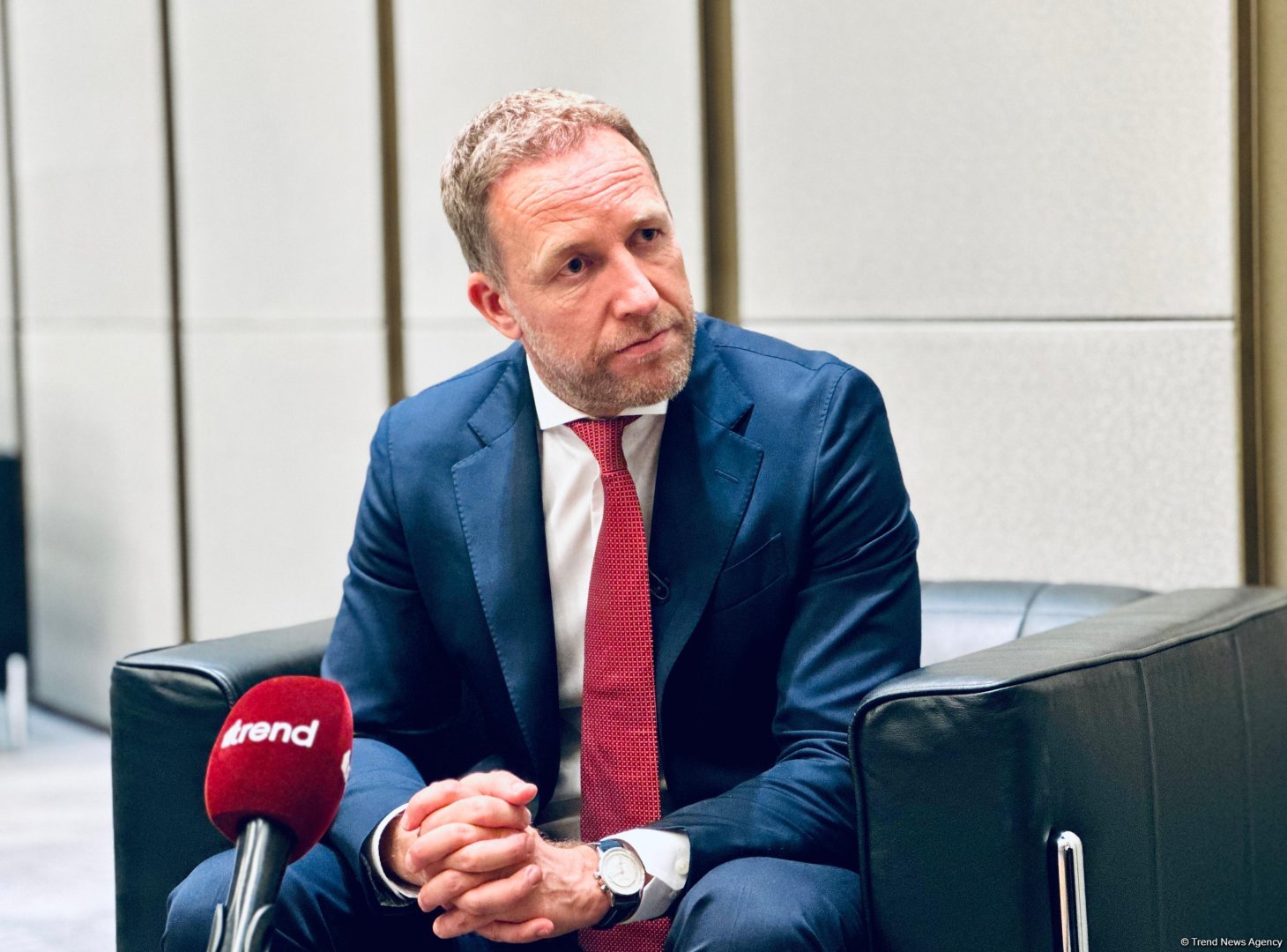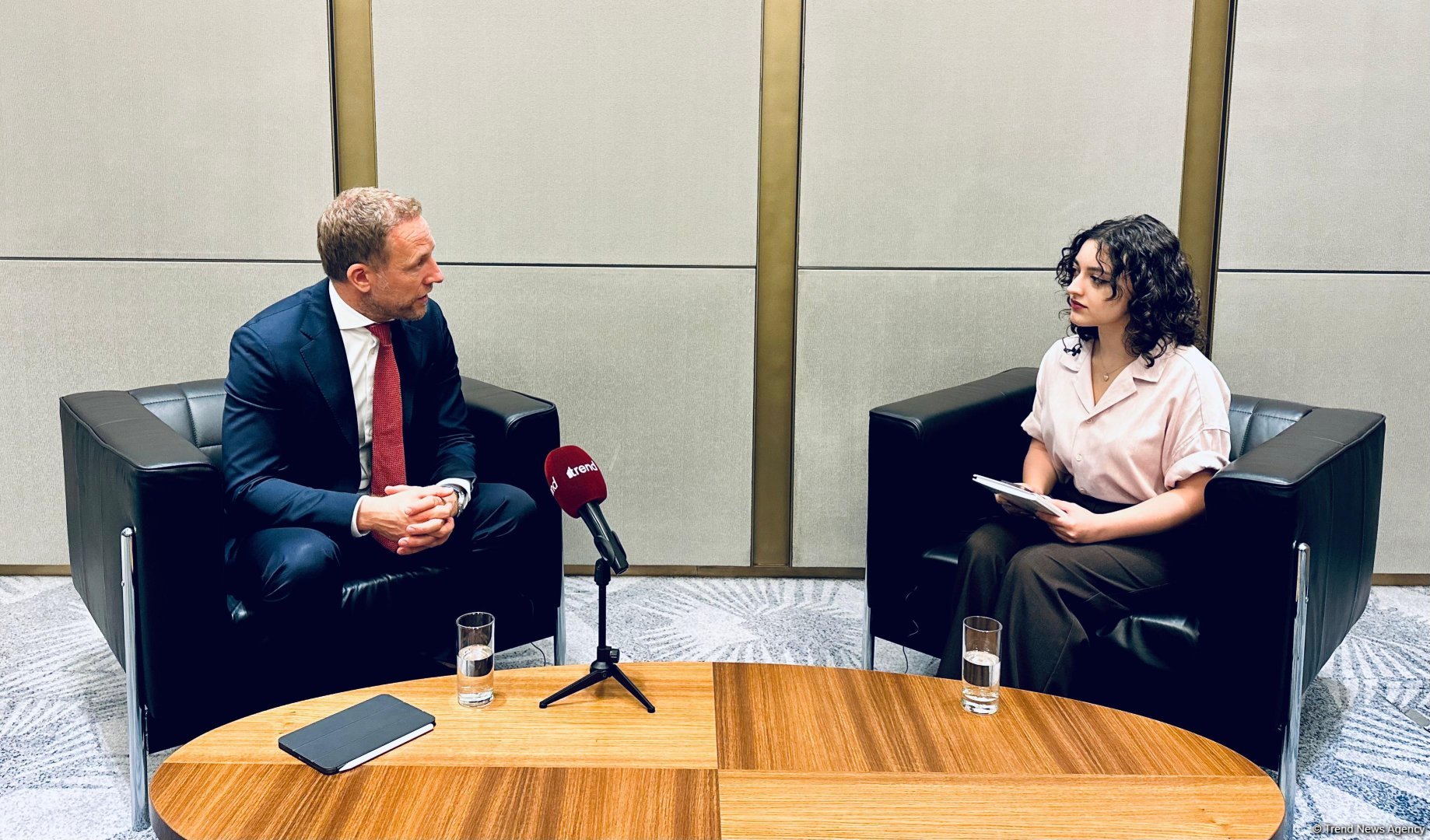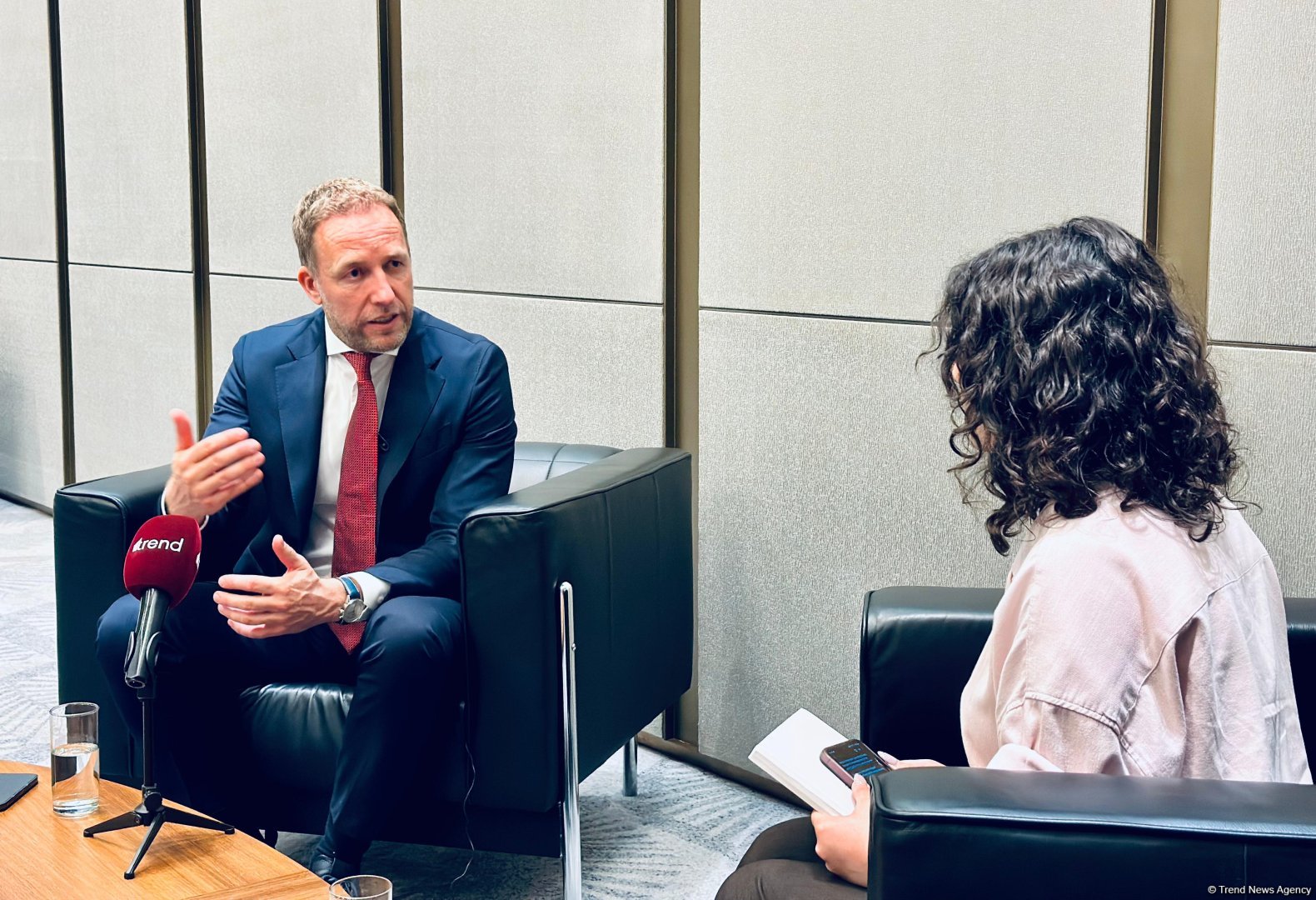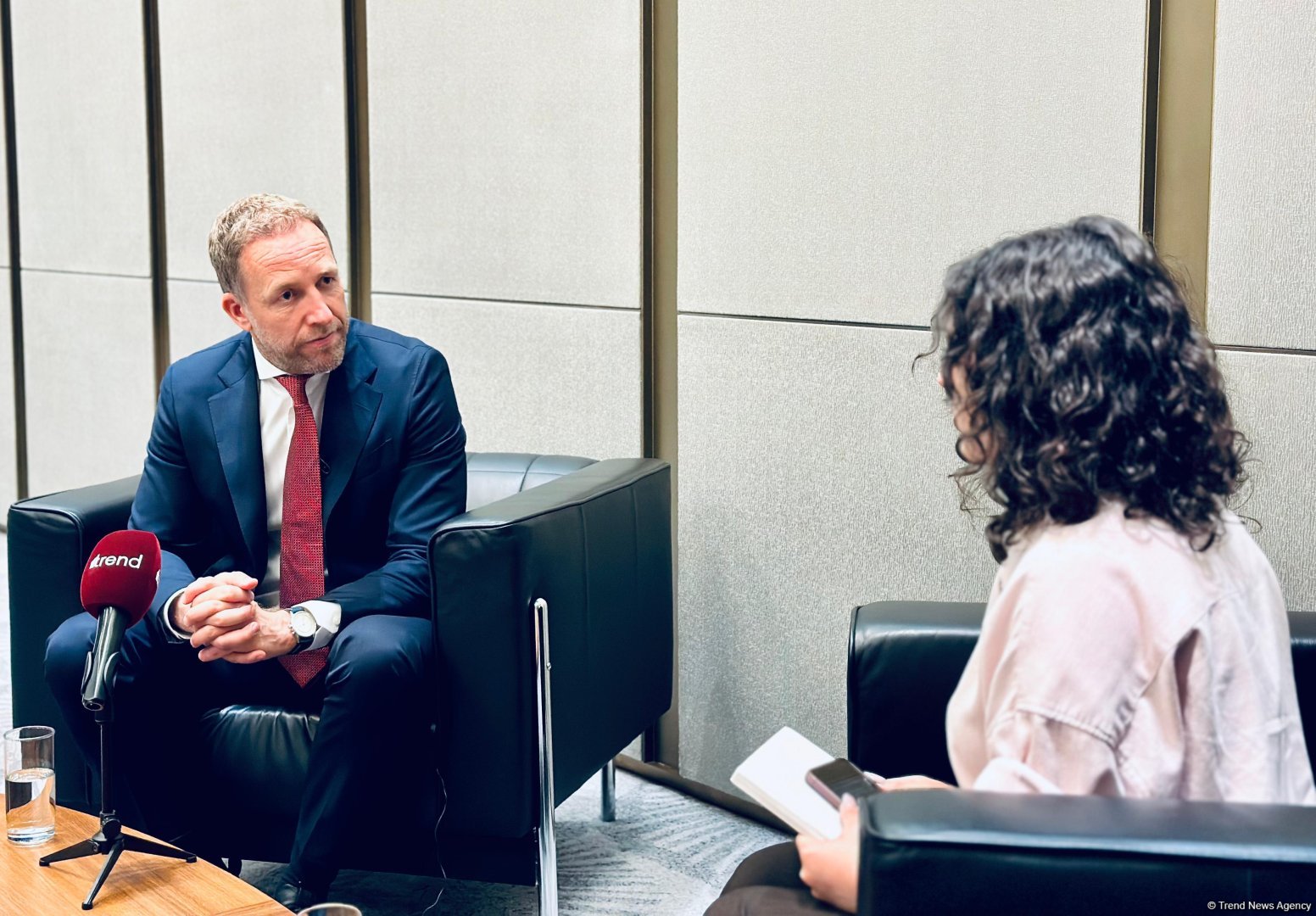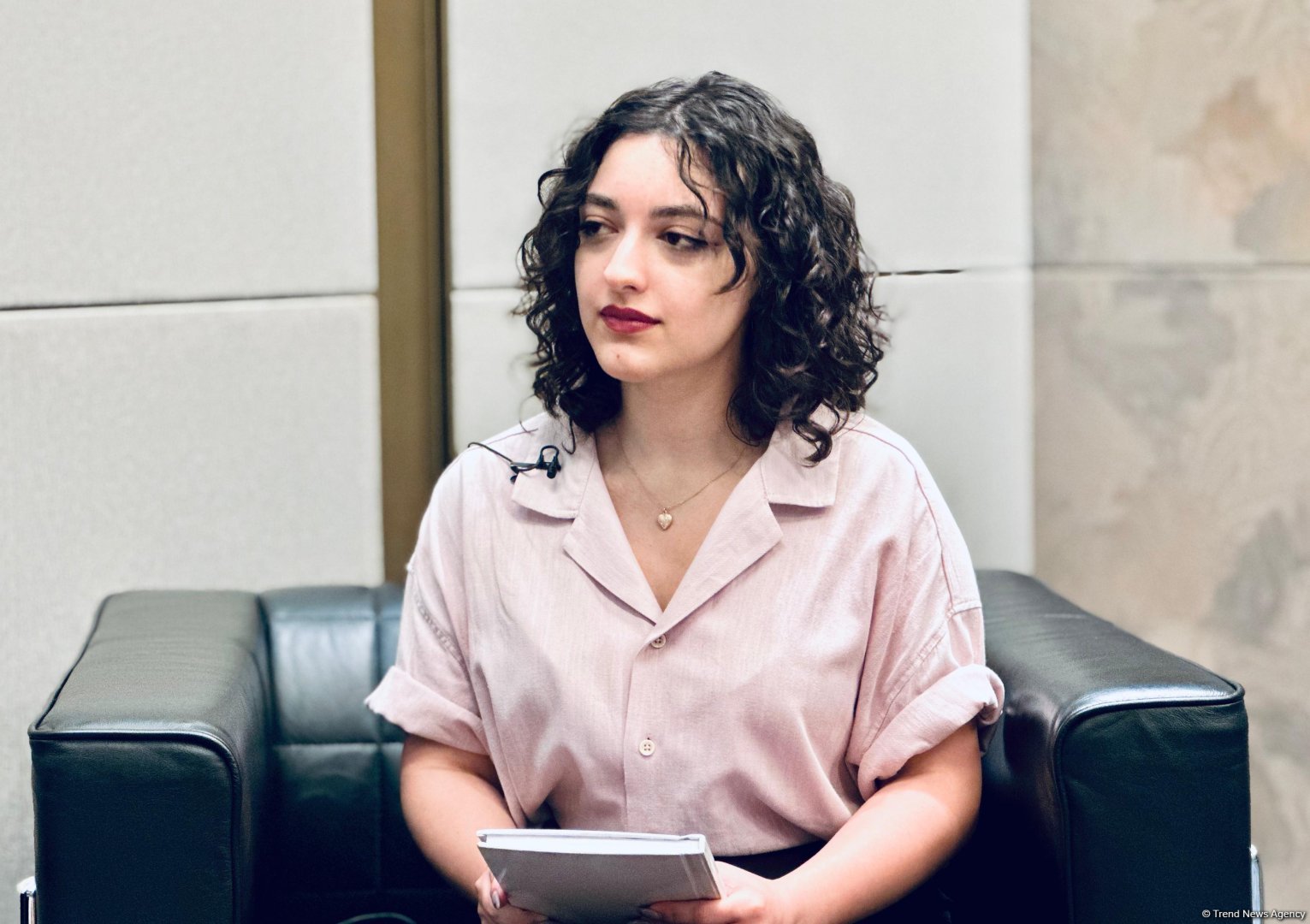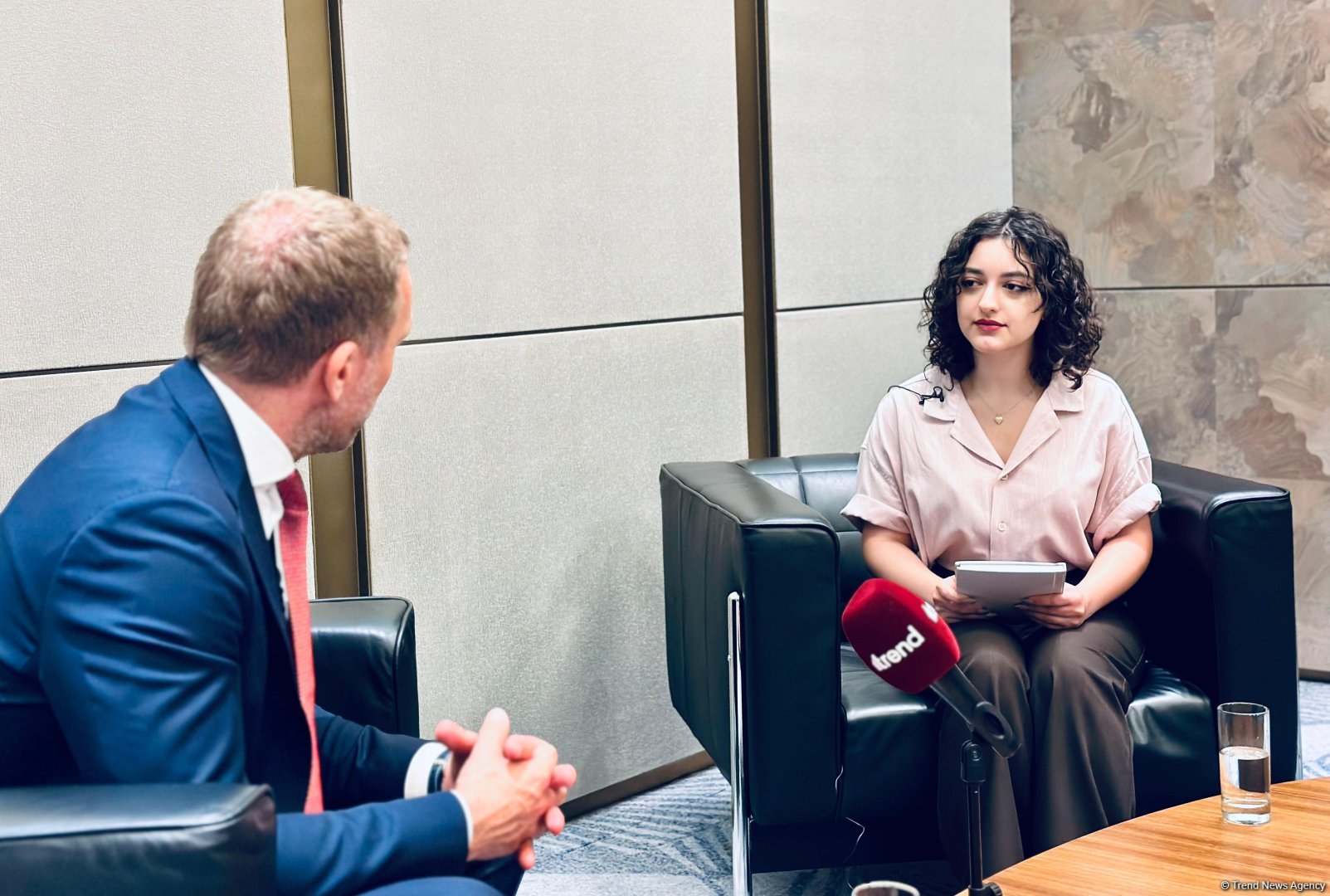BAKU, Azerbaijan, July 6. Azerbaijan has significant potential for developing renewable and green energy sources, such as solar and wind power. With the right approach to balancing and transitioning to these fuels, the country's energy sector can remain a powerhouse both locally and globally, said Patrick Herhold, Senior Partner and Managing Director at Boston Consulting Group, in an exclusive interview with Trend.
"The potential for renewable and green energy is very significant here in Azerbaijan. The sun is shining a lot for solar photovoltaics, a meaningful wind is blowing, so there is a good potential for green energies," he said.
Azerbaijan has always been a reliable partner in energy supplies to Europe. Now, amidst geopolitical tensions, energy corridors, demand, and supply balances have changed significantly over the past two and a half years, but Azerbaijan continues to play a crucial role in providing essential energy to Europe. Europe has turned to Azerbaijan, asking for an increase in natural gas production, which could enhance its role as a significant partner in gas supply, Herhold noted.
Azerbaijan's significant oil and gas reserves, combined with its
renewable resources, create a pivotal moment for the country's
energy strategy. Transitioning to renewable energy will enable the
country to increase its exports of natural gas and low-carbon
electricity. "Azerbaijan has started to put in place renewable
energies to partially replace electricity generation from gas,
meaning it can export more gas, which in itself is a good business
case. And going forward, it may export more electricity, low-carbon
hydrogen and its derivatives along corridors to neighboring
countries, and maybe even to Europe. And it helps diversify and
greenify the local energy mix," said Herhold.
In some regions, Azerbaijan has a remarkable chance to build a
green economy from the ground up, leveraging its abundant natural
resources. "There have been good renewable projects announced and
already being implemented in Azerbaijan. I think one of the unique
and special aspects of Azerbaijan is that some of its territories
have significant potential for building a green economy practically
from scratch. Unlike many other countries that need to decarbonize
their existing industrial structures, these areas in Azerbaijan do
not have strong industrial bases yet. It is a very engaging and
amazing opportunity to think not only about how to make a dirty
place clean, but also about how to build a green economy in a place
that does not yet have a solid and broad industrial structure. That
is also a very good opportunity for the country itself, given its
abundant natural resources," he said.
Hosting COP29 in Azerbaijan is a significant opportunity and
obligation for the country, allowing it to show its achievements
and potential in climate action. But that opportunity also comes
with an obligation.
"The question will be, can Azerbaijan deliver on its own commitment
in the next years? A commitment has been made for Azerbaijan to
design a 1.5 degree-compatible path, and that is a very ambitious
decarbonization pathway for the country. The question will be, what
strategy, roadmap, measures and actions does the country need to
achieve that?"
To achieve that goals, changes in the energy portfolio are necessary. Azerbaijan should and can modify its energy portfolio, necessitating new approaches and actions in both government regulation and business project financing. The regulatory framework is comparatively stable in Azerbaijan but it will need to evolve, Herhold said. That's the case in every country to manage the transition towards a more sustainable energy future. Azerbaijan has a very strong starting point.
Ensuring global energy security and transitioning to net-zero emissions require the creation of proper regulatory frameworks for safe and sustainable investments. Companies also need to contribute by taking business risks and trying new strategies and technologies. "They will need to take certain business risks. They will need to explore new strategies. They will need to try out new technologies to make sure that step by step, they set themselves up for a world that will hopefully, at some point in time, be a net zero emissions world," Herhold said.
Financing will be a key aspect for low-carbon technologies, he said. "Personally, I would almost always say it's less about the financing as such, but it's about making the business cases work. So far only roughly half of the technologies that we need to decarbonize our economies have a positive business case. We need to make sure that the other technologies do get into the money. The business case is there for renewables, such as solar photovoltaics and wind. It's partially there for heat pumps. We do not yet have a business case in all regions and for all applications in carbon capture and storage. We do not yet have it fully in hydrogen," Herhold said.
According to him, there is a lot of talking about carbon capture and hydrogen, but the business cases will still need to be established more robustly by regulators, governments, industry associations.
"I think a reconfirmation of the direction that has already been discussed at prior COPs would be a good outcome and a substantiation of commitments. I don't think we need more commitments at that stage. It is about delivery, more about action and making real progress. The first step is for regulators to put the frameworks and the business cases in place. And for me, Azerbaijan can play a key role in advancing on that. However, it would be too much burden to expect one country like Azerbaijan to solve the global climate challenge. We had 28 COPs so far and still emissions have increased every single time. What I do think is a meaningful concept is the 'troika', i.e., the combination of COP28 in Dubai, COP29 in Azerbaijan and then COP30 in Brazil to give a more consistent agenda and an evolution across the COPs, which is very much needed instead of one country after another setting a different agenda," he added.

